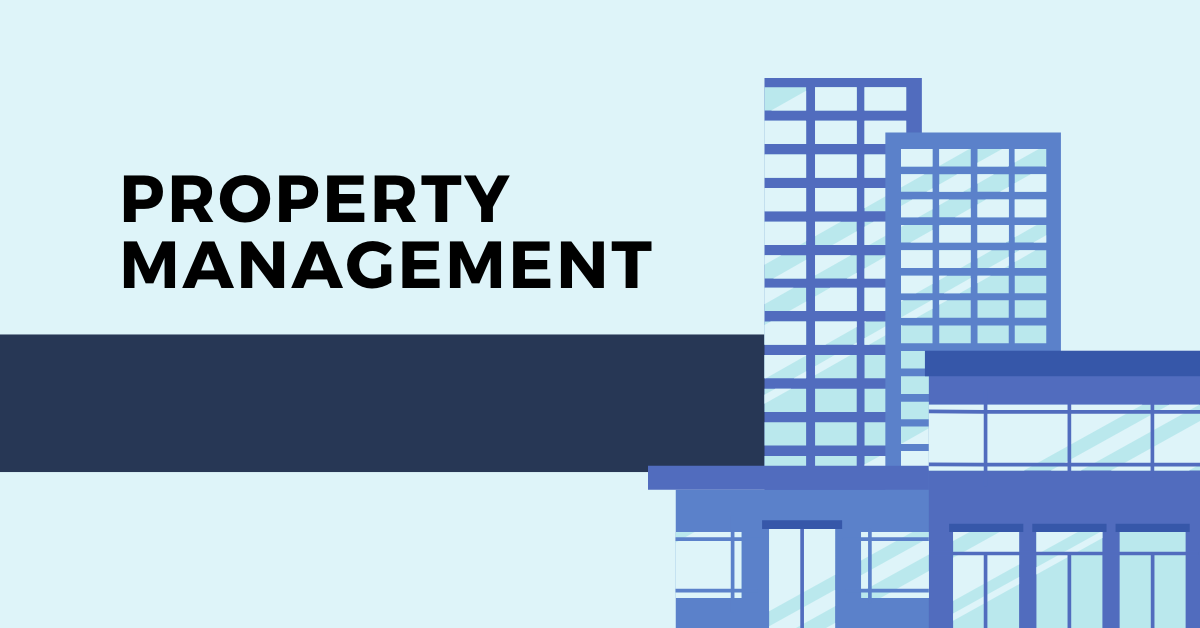
Rental properties are considered as one of the best income-generating assets. You purchase a residential or commercial property, rent it out to tenants and earn a sizeable income from it.
However, there goes a lot in running a successful rental-based real estate business. You not only have to ensure a habitable environment for tenants but also have to take care of repair and maintenance related issues. This is where availing property management services can benefit you in the long run.
From screening tenants and collecting rents to managing property and maintaining financial records, a property manager can take responsibility for an array of tasks. In this blog, we will discuss property management and the benefits it entails for you, as a property owner.
What is Property Management?
Property management refers to the act of overseeing a residential or commercial real estate asset. The property can be apartments and luxury estates or commercial spaces like malls and office complexes. The primary objective of offering this service is to facilitate a smooth business for investors so that they can focus on other aspects of the sector. Hence, a property manager overlooks the operation, control, maintenance of the properties to preserve their value and generate income.
How can a Property Management Company Help You?
Property managers are hired by investors and landlords to manage the operations of rental properties. From creating budgets and doing real estate marketing to screening tenants, these professionals will be responsible for smoothly running the rental business. Some of the duties and responsibilities of property managers been given a rundown below:
1. Tenancy Management
Property managers will be responsible for filling the vacancies by looking for individuals and/or families that will be the ideal tenants. They ensure that the profile of tenants complies with the requirements (if any) as set by the building association. This is accomplished by checking the credit score, references, criminal history, etc of tenants. If needed, they will also visit the tenant’s employment place to confirm their employment status.
To accomplish this, property managers carefully review the credit scores, references, and criminal histories of potential tenants in order to ensure that they meet the building association’s requirements and find the most suitable individuals or families to fill in the vacancies. Additionally, Property managers may conduct on-site visits to the tenant’s workplace to verify their employment status, if necessary.
2. Fixing Rents
Another aspect of property management is to fix the rent value of a property. This requires a strong understanding of the local market and the status of nearby properties. Property managers ideate rental guidelines and devise a method for collecting the rent from the tenants. Verifying whether the utility bills or society charges have been paid by the tenants also forms a part of their tasks.
3. Property Inspection
To keep you updated on maintenance and repair related issues, property managers will inspect the property on a regular basis. Not only restricted to safety monitoring, but they will also inspect the property from different points of view like pest control, architectural, electrical, and landscaping, etc.
Updating the facilities like appliances and laundry also forms a part of property management and inspection services. It is either done during the tenant transition process (i.e. the time when one tenant vacates the property and a new tenant is in waiting) or whenever required.
They ensure hospitable conditions for tenants and hassle-free end-to-end property management for you.
Also, property managers provide preventive maintenance, Implementing a preventive maintenance strategy is about keeping a property in good condition. These include taking routine inspections of HVAC, plumbing systems, and electrical appliances, and subscribing to these preventive maintenance to keep the property safe and functioning.
The property manager also provides added services such as pre-leasing inspections, these inspections are required while giving property to new tenants, as checking for safety hazards, structural integrity, and compliance with regulations is necessary.
4. Offering Legal Services
Having a sound knowledge of laws is very important in running a real estate company. From tenant screening and verification to dispute resolution, a good property management company will handle the legal aspects of rental properties on your behalf. They may also take assistance from professionals like lawyers to carry out their responsibilities in accordance with the law.
Property management companies also offer legal advice for obtaining important documents such as ECs (encumbrance certificates). People buying properties can be informed of correct and timely EC acquisition and save significant time and resources by assigning these responsibilities to professionals in legal services.
5. Managing and Maintaining Financial Records
Another important responsibility of a property manager is to formulate and manage the budget. Apart from including one-time expenses, they focus on operational costs and contingency funds for creating a monthly or yearly budget.
Since they will be handling the budget and maintaining the cash flow on your behalf, property managers also are adept at bookkeeping. This will ensure a strong and transparent relationship between you and the tenants transparent. Plus, maintaining financial records like income and expenses, repair and insurance costs, utility bills, building inspections, rent collections, etc will help you in filing yearly taxes hassle-free.
What to Look for in a Property Manager?
Property management is not an easy task. It requires excellent organizational and communication skills coupled with analytical and problem-solving ability. In addition to this, the individual or the company must have sufficient knowledge about the real estate industry in India and the associated laws. Enlisted are some skills that you must look for in a property management agency or an individual.
1. Excellent Communication Skills
Property managers are the threads that connect you with tenants. Hence, to respond to any inquiries and complaints in a timely manner, these professionals must have exceptional written and verbal communication skills. While face-to-face interactions will be frequent, the ability to communicate with the tenants through an automated system will also be beneficial.
2. Exceptional Knowledge of the Real Estate Laws
Whether it is property tax or draft model tenancy act, a property management professional must stay abreast with notifications and laws pertaining to the real estate sector. This will help you in taking advisory services in case a legal dispute arises with the society or the tenants.
3. Risk Management
Be it residential or commercial properties, risks can evolve from multiple sources. This includes, but is not limited to fire, natural disasters, and personal threats. Hence, the property management professional must have good experience in planning a risk management strategy before handing over the properties to tenants. If the properties are in a housing complex, the managers will be responsible for elucidating the plans to the tenants.
4. Can Plan for Long-Term
Setting long-term goals and developing strategies is essential in running a rental based real estate business successfully. The property management agency or the individual must be able to identify the loopholes and bring suitable solutions for the same. Cutting down on unnecessary expenses while ensuring proper maintenance and repair of the properties is a characteristic of an efficient manager.
5. Excellent Marketing Skill
Whether is it finding new tenants or selling the properties, an experienced property management professional will handle real estate digital marketing efficiently. Apart from property valuation and advisory services, they will provide optimum coverage across online mediums through multiple tools. Answering queries, updating listings on your website, and creating a portfolio of your properties is what property managers will assist you with.
Types of Property Management
Property management comes in many different types, some firms specialize in providing property management for specific type of property, These are some types of common property management.
Residential property management
Property managers are the threads that connect you with tenants. Hence, to respond to any inquiries and complaints in a timely manner, these professionals must have exceptional written and verbal communication skills. While face-to-face interactions will be frequent, the ability to communicate with the tenants through an automated system will also be beneficial.
Property management for businesses
Business-specific management is needed for commercial properties. The scope of commercial property administration includes Hotels, Retail properties like malls, restaurants, offices, rental work space by the day or hour in co-working spaces.
Industrial property management
The unique requirements of industrial assets need customized management solutions. The industrial property management includes Heavy and Light manufacturing facilities, Stockrooms & Distribution facilities.
Property management with special-purpose properties
Specialized management solutions are required for certain properties with distinct objectives. These include Theatrical venues, Sports arenas are available, Hotels and resorts, senior care facilities, Schools, colleges & Worship centers.
Hence, taking assistance from empaneled property management professionals is an excellent way of running a real estate business. It will not only help you save a lot of time and resources in managing the day-to-day activities of rental business but will also ensure a consistent and reliable monthly cash flow. Additionally, with the expertise of well-reputed real estate management firms, you will be able to address tenant-landlord related issues efficiently.

![Well, #GrowWithPropacity is here to educate you all about all things Real Estate.
Follow to stay updated in Real Estate!
[Real Estate, Construction, Real Estate Tips, Real Estate Growth, Real Estate Industry, Carpet Area, Super Area, Built Up Area, Home Buying Tips, Home Buyers, Property]](https://propacity.com/blogs/wp-content/plugins/instagram-feed/img/placeholder.png)
Leave a Reply